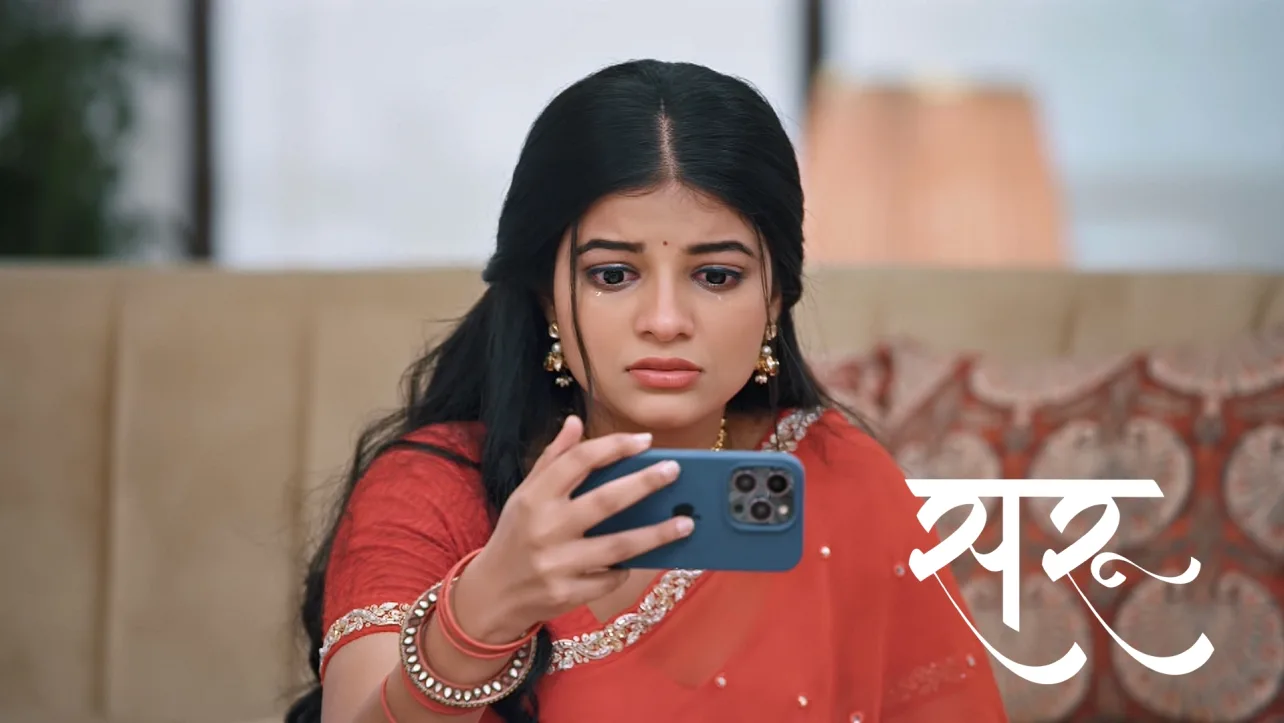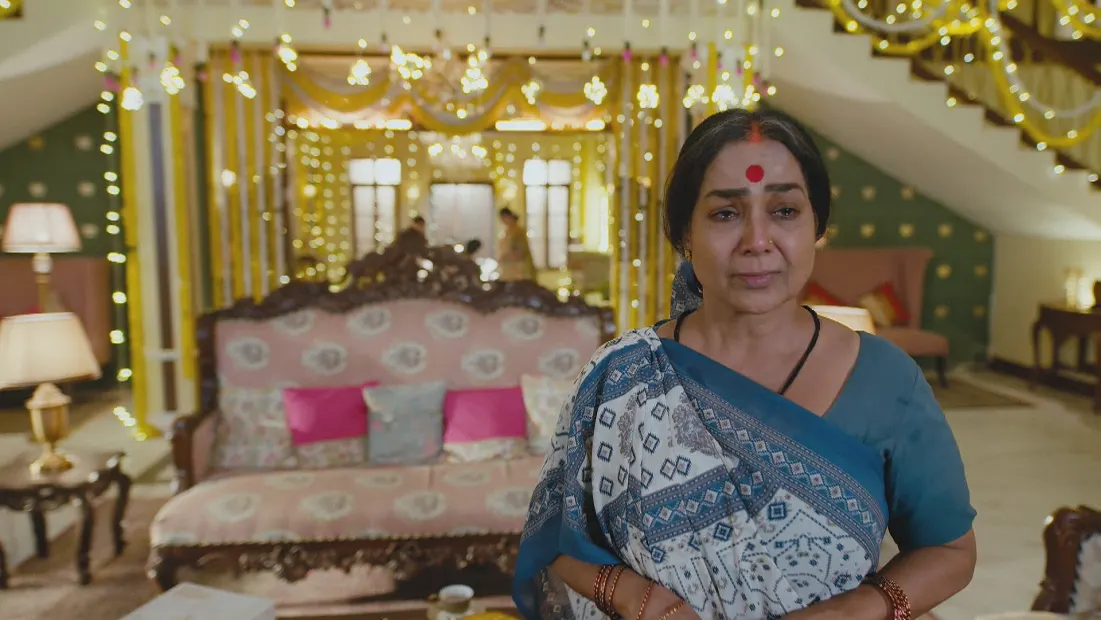This week on Saru, an intimate relationship beat becomes the narrative’s ignition point. After the engagement, Tara is gently—but persistently—needled by Kamini to consider kundali milan (horoscope matching) for the couple. It sounds harmless, even traditional. But in Saru, customs are never just rituals; they’re levers. Ved initially pushes back, refusing to let a chart decide a future he believes should be built on choice and trust. And yet, by week’s end, he concedes—setting the stage for consequences that feel social, emotional, and deliciously dramatic.
If you’re catching up and want to stay in this mood of tangled relationships and cultural cross-currents, take a detour through TV Shows for similar emotional arcs, sample adrenaline in drama TV Shows, or browse character-first narratives in romantic TV shows—a handy companion lane while you wait for Saru’s next turn.
The Setup: Post-Engagement Calm Meets a Calculated Nudge
The episode opens in the soft afterglow of an engagement—families exhale, friends share private smiles, Tara and Ved bask in something like certainty. Then Kamini, all concern and careful phrasing, proposes kundali milan. It’s framed as sensible due diligence, a safety net. The writing is subtle here: this isn’t crude manipulation; it’s social logic in silk gloves. Tara is receptive precisely because she wants to do right by tradition and by Ved. The ask feels small. The implications are not.
Kamini’s Instigation: Tradition as a Tactic
Kamini’s move is smart because it’s plausible. In many households, kundali matching is not superstition but standard operating procedure. By packaging the suggestion as “for your peace of mind,” she leaves Tara little rhetorical room to refuse. Notice how the scene isolates Tara’s micro-expressions: a hesitant nod, a troubled glance—she hears a faint alarm and still steps forward. That’s the show’s thesis this week: big conflicts enter through miniature doors.
Ved’s Resistance: Love vs Algorithm
Ved’s initial “no” lands with weight. He doesn’t reject culture; he rejects outsourcing intimacy to an algorithm of planets. The scenes sell his position with dignity—no grandstanding, just a measured logic: we chose each other after seeing each other. Why re-negotiate the promise with a paper? It’s a crisp articulation of the show’s modern heart. Yet the more Tara softens, the more Ved realises that refusing isn’t only about him; it’s about reassuring her, protecting the relationship from doubt. Conceding isn’t capitulation. It’s care.
Why Kundali Milan Matters in Saru’s World
On paper, kundali milan is a checklist; on screen, it becomes a pressure system. Results can embolden elders, validate sceptics, or arm antagonists. Even a “good match” can spark new demands (“Let’s do the remedies too”). A “bad match” can trigger social whispers, test the couple’s backbone, and place modern love in a crucible: do Tara and Ved define destiny, or does destiny define them? By getting Ved to agree, the writers open a corridor stocked with narrative booby traps.
Tara’s Crossroads: Agency Under a Smile
Tara shows sense; her acceptance does not signal gullibility. She honours roots but keeps the future in her grip. She asks questions, seeks context, chooses ritual, hoping it will quiet and steady road to marriage. That makes her compelling: she’s not dragged by tradition; she uses it, but knows it can use her back. The tension now is whether Kamini’s “harmless” idea remains harmless when results arrive.
Craft & Performances: Subtext Over Shouting
-
Pacing: A slow boil. The show resists melodrama, letting small gestures—Kamini’s careful tone, Tara’s watchful eyes, Ved’s controlled exhale—do the heavy lifting.
-
Writing: No cartoon villains here. Kamini’s instigation is layered, Tara’s hesitation is human, Ved’s resistance is principled. Dialogue works in half-sentences and pauses.
-
Direction: Tight close-ups catch shifting loyalties. The camera lingers after lines, letting the silence argue back.
-
Music & Mood: Understated motifs, a restrained palette—perfect for a week about invisible pressure.
Reading the Tea Leaves: What Ved’s “Yes” Really Means
Ved’s eventual agreement is a fork in the road. It might buy short-term peace with the house, showing elders he isn’t combative. It could also embolden those seeking leverage: a chart can be waved around to justify “well-meaning” control. The smart play now? Keep the couple’s decision-making private, decide who sees the report, and when. In Saru, information is currency; Ved and Tara must choose their bankers wisely.
What This Sets Up Next
-
Result Day Tension: Even a perfect score can be weaponised; an imperfect one can be spun. Expect selective reading and “expert” opinions.
-
Kamini’s Next Beat: Having normalised the ritual, she may escalate—suggesting remedies, timing, or conditions dressed up as care.
-
Couple’s Boundary-Setting: Tara and Ved will need a communication pact: what we tell, what we don’t, and how we handle pushback.
-
Family Dynamics: Watch the side characters—those who seemed neutral will reveal where they actually stand when the chart lands.
-
Modern vs Traditional Thesis: The show is quietly asking: Can love be both culturally literate and self-authored?
Final Word
This week, Saru proves that seismic shifts often start with soft words. Kamini plants a seed, Tara waters it with good intentions, and Ved—ever the realist—agrees to keep the garden calm. But kundali milan isn’t a neutral ritual in this world; it’s a plot device with teeth. Whether the chart becomes a blessing or a blade depends on how the couple manages information, influence, and intimacy. The engagement ring sparkled last week. This week, the fine print shines brighter—and sharper.
Bio of Author: Gayatri Tiwari is an experienced digital strategist and entertainment writer, bringing 20+ years of content expertise to one of India’s largest OTT platforms. She blends industry insight with a passion for cinema to deliver engaging, trustworthy perspectives on movies, TV shows and web series.





